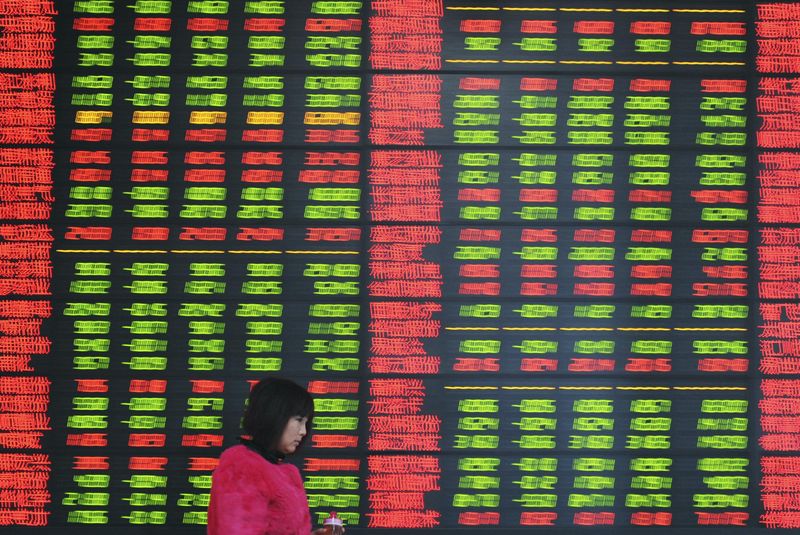Investing.com - Asian shares were mixed on Tuesday with Shanghai up, but markets in Sydney, Tokyo and Hong Kong down on poor sentiment.
The Shanghai Composite rose 0.97%, while Hong Kong's Hang Seng index was last down 1.67% after both markets were closed on Monday to mark a holiday.
The yuan fell against the dollar Tuesday after the People's Bank of China set a weaker fixing for the first time in five sessions at 6.4663 compared with 6.4585.
In Australia, the central bank held steady as expected and signaled it awaits new labor data for a better assessment of the economy.
The NIkkei 225 fell 1.98%. The S&P/ASX 200 fell 1.37%.
Comments from the Bank of Japan Governor Haruhiko Kuroda on bond buying were also noted.
In Australia, the trade balance for February widened to a deficit of A$3.41 billion, compared to a deficit seen of A$2.6 billion. Exports fell 1%, while imports were flat.
Japan reported average cash earnings jumped 0.9% in February year-on-year, well above the 0.2% gain seen, while overtime pay rose 0.40%, an improvement on a 1.3% year-on-year drop.
U.S. stocks retreated from four-month highs on Monday, as investors expressed concerns on renewed declines in oil prices while bracing for a weak batch of quarterly results ahead of the start of first quarter earnings season.
On Monday, U.S. crude futures tumbled to fresh 1-month lows after analysts at BNP Paribas (PA:PA:BNPP) predicted that oil prices could retest 13-year lows from earlier this year, amid mounting stockpiles worldwide. It also came in the wake of comments from Saudi Arabia late last week that the kingdom may resist any production freezes at a highly-anticipated meeting this month in Qatar unless Iran also agrees to cap output. While U.S. equities have broken free from crude prices in recent sessions, the major indices still remain closely linked to the volatile daily swings on global oil markets.
The Dow Jones Industrial Average lost 71.70 or 0.40% to 17,721.05, while the NASDAQ Composite index fell 22.74 or 0.46% to 4,891.80, both closing off session-lows. The S&P 500 Composite index, meanwhile, dipped 8.91 or 0.43% to 2,063.87, as eight of 10 sectors closed in the red.
